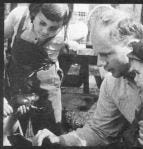Models of classroom management: a misleading objectifying of experience?
‘To survive in the classroom, every teacher needs to have a clear, well-thought-out plan that provides an effective framework for maintaining discipline’ (Krause, 2006, p. 458)
Every year, my education students ask for classroom management skills to put in their toolboxes. ‘Please show us what works, what’s tried and tested and can help me survive the challenges of difficult students,’ they say.
I remember feeling the same myself when I first started teaching in the early 70s, and the awful feeling of being in a classroom and feeling totally unprepared to deal with what was happening.
So, to help alleviate the students’ anxiety, I have in the past used Professor Krause’s three models of classroom management in my unit, and earlier this week, as part of my preparing for the new year, I drew up the following mindmap to share with the students.
But how useful are models like these? Do they help student teachers begin the process of gaining the pedagogical skills and knowledge that will help them run their classrooms? Or is the claim that every teacher needs a well-thought out plan in order to survive misleading?
A second teacher education Professor, Deborah Britzman, seems to think it’s the latter.
… normative notions collapse the distinction between acquiring pedagogical skills and becoming a teacher by objectifying experience as a map. In this discourse, everything is already organised and complete; all that is left to do is to follow preordained paths. (Britzman, 2003, p. 30)
My own experience as a teacher tells me that following preordained paths does not work. It didn’t work if I decided that I’d ‘just be myself’ in the classroom (the ‘self’ I thought I knew suddenly felt unknown and unstable once I found myself in unfamiliar territory); it didn’t work if I tried to be someone else either. What worked with one group of students would fail utterly with a second; what worked one day in first period fell flat the next day in the last period of the day.
I remember John Holt (an early educational hero of mine) writing in one of his books that teaching was like batting in baseball; you could count yourself a success if one in five attempts produced a ‘home run’.
Krause’s approach reduces an enormously complex field into something graspable. It's an approach that has the potential to reduce anxiety by naming different ways of being in the classroom. It gives preservice teachers the opportunity to ask important questions as they prepare for their careers. Is there just one way to teach, the way I experienced as a student? What teaching styles best accord with my values? What are my aims as a teacher, and what models might best support those aims? Can I learn from many models so that I have the capacity to adapt in different contexts?
Britzman’s approach, though, is radically different. Where Krause seeks to to simplify (and therefore reduce anxiety), Britzman wants to complexify and problematize (26).
For those who … enter teacher education, their first culture shock may well occur with the realization of the overwhelming complexity of the teacher’s work and the myriad ways this complexity is masked and misunderstood (p. 27) … learning to teach is not a mere matter of applying decontextualized skills or of mirroring predetermined images; it is time when one’s past, present, and future are set in dynamic tension. Learning to teach – like teaching itself – is always the process of becoming: a time of formation and transformation, of scrutiny into what one is doing, and who one can become (p. 31).
I agree with Britzman.
Krause's models, it seems to me, take us into territory full of unsupportable generalisations and over-simplifications.
So why do I continue to include them as part of my unit?
It's true that the discussions we have about them in tutorials, and the questions they raise, seem helpful. But could it be that the real reason is that I'm trying to reduce anxiety (my own and my students') by teaching something concrete, whether or not it's actually useful?
***
Britzman, D. (2003). Practice Makes Practice: A critical study of learning to teach, revised edition. Albany: State University of New York Press. Krause, K. (2006). Managing behaviour and classrooms Educational psychology: for learning and teaching (2nd ed.). Melbourne, Victoria: Thomson.








